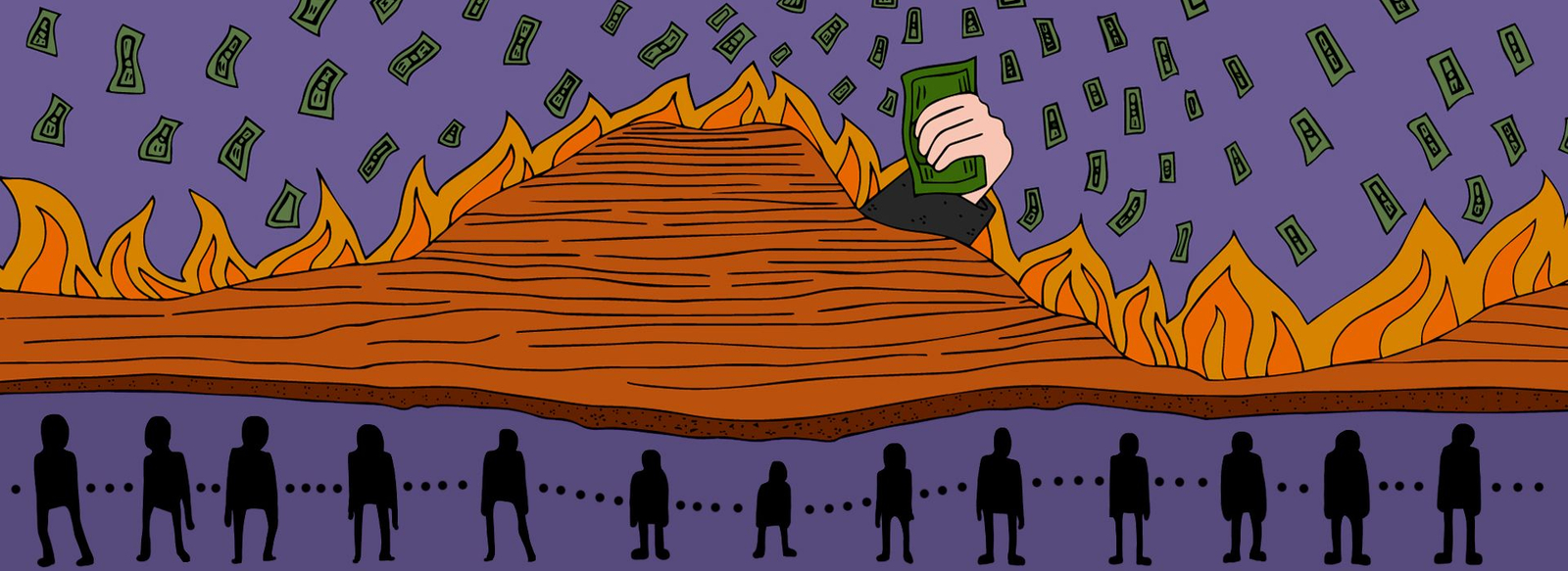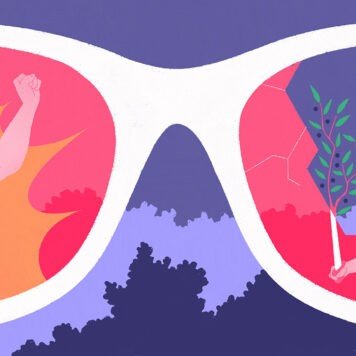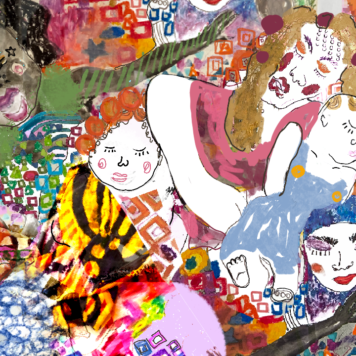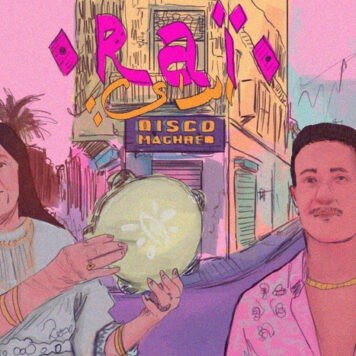The Intergovernmental Panel on Climate Change (IPCC) have some of the most reliable science in any field and they predict that at 2°C heating, 3.7 billion people are likely to be facing extreme conditions. There is also another major body looking at the world’s natural environment. This body calls itself the Intergovernmental Science-Policy Platform on Biodiversity and Ecosystem Services (IPBES). Despite being an unusual mouthful, IPBES has not really grabbed the eye of the public as much as the IPCC but their science is potentially more scary. They look at ecological demise which could have much graver and unrectifiable impacts than a warming climate. We can reduce emissions quite quickly if we have the political will (stop laughing please), but ecological problems such as bringing soil back to life is very hard and reversing species extinction is well-nigh impossible.
The problem with soil is that, once degraded, it takes a long time to form – something between 200 to 1,000 years to create just an inch of topsoil. When the soil is gone it’s a problem, a really serious one. Industrial farming is largely responsible for this rapid destruction. Agribusiness produces only 20% of the worlds’ food whereas small farms account for 80%, yet billions of pounds are invested in industrial farming. Where does the money go, who gets it?
The story of wealth accumulation has driven just about everything over the past 500 years, not just large-scale agriculture. It came about with the advent of the European colonial and imperial monsters that were intent on growth and prosperity. Western modernity, or rather European modernity, dominated and extracted from all over the world. It had as its goal to gain wealth by cementing power over nature, dominate other cultures and keep women suppressed – and it relied on expansion of these aims. It ran for hundreds of years until empire and imperialism began a closing overture around the time of WW1. Whilst it is waning, it is not over yet.
There is a really strong argument that climate change and ecological collapse have their roots in this industrialised greed. It is certain that they are deeply intertwined, and that history has been shaped by the dominant paradigm of power to help by the various European empires. It continues exploitative appropriation of resources which has sadly degraded ecology, is changing the climate and multiplying oppressions.
False interpretations of the bible claimed white supremacy was divinely ordained and gave the go ahead for subjugation. Outward European expansion was supported by Papal Bulls which decreed expansion, encouraging the use of the labour of the ‘savages’ (their words) who it was okay to enslave. In reality this was a mask for commerce and a dogma for wealth acquisition. Not only were colonised people abused but their lands were ravaged too, and the extraction of resources began in earnest. Colonialism and the innocuous term of ‘discovery’ set the grounds for climate destruction and genocide of Indigenous people and nature which sadly continues today.

The killing of Indigenous activists and campaigners by mining and oil companies is a good example of its continuation. Cerro Rico silver mine, ‘the mountain that eats people’, was first exploited in 1545 by Spanish invaders and is reputed to have supplied 60-80% of all of the world’s silver. It has taken the lives of 8 million miners, enslaved Africans and Indigenous people. During October 2020, environmental activist Fikile Ntshangase was shot dead for opposing a coal mine near her home in South Africa and Global Witness’ latest report documents 212 environmental activists and land defenders murdered in 2019; the tactics of empire are still with us.
Many former colonised and Indigenous people are adamant that the current climate crisis is an evolution of colonialism with solid roots in racism. Critical Race Theory is clear that structural racism adapts as society changes, but it certainly does not disappear. Extraction of fossil fuels and industrialisation would not have taken place, or at least certainly not on the same scale, without the funding empire and western land grab facilitated. They are therefore a part of the capitalist system which demands control and acquisition and that dehumanises people by centring white supremacy.
Many communities around the world are suffering from the impacts of climate change and ecological damage, most obviously Pacific island states, the Caribbean, sub-Saharan Africa and Bangladesh, but marginalised and vulnerable people in western countries are also affected. We only need to look at polluting industries bringing negative health impacts which are often cited in poorer communities. It’s an environmental injustice that is called out by the civil rights movement in the US, but whilst issues are similar in the UK it has not received the same exposure or challenge. 662 polluting industries in the UK are situated in poorer mainly Black neighbourhoods, with only five in more affluent areas.
There is a lack of focus on environmental justice in the UK outside of the Black campaigning and ally/activist community and frankly, white environmental movements are only just coming to terms with their failings. How many have heard of the campaign to stop the disastrous expansion of the Edmonton Incinerator? The rebuild will emit 700,000 tonnes of CO2 each year, more than a coal power station, spewing out toxic particulates into the surrounding deprived neighbourhoods. Burning waste is archaic and dangerous and is said to kill at least 15 people each year, that means 150 people in poor communities over its proposed new lifetime. It also impacts hugely on recycling rates so there is little sense. This is a huge racist crisis. Its £500 million price tag will be paid for from the public purse, but where does this money go? To private enterprise, maybe, but who will suffer is more clear, it will be the marginalised that will fall victim to this violence.
It is a simple deduction that wealth created by enslavement of African people, and subjugation of the Americas paid for the industrial revolution and its emissions – ergo, colonialism has a direct link to capitalism which continues its exploitation and wealth creation by further damaging ecology and the spewing out of emissions.
The challenge in society now is that every issue that arises due to environmental injustice becomes a social justice matter because structural racism has meant exclusion, lack of support or just a blatant shutting out of the disenfranchised. Limiting of access seals climate change clearly in the realms of a racist crisis.
We do well to remember that racial inequality did not end with the abolition of slavery, in many ways it got worse as growth demands better means of extraction and domination which international policy helps facilitate. It is necessary for approaching solutions for our joint futures to recognise the racist nature of the environmental emergency as a starting point. But what is the solution?
Black energy professor Myles Lennon says that the BLM movement is more than stopping racist killings of Black women and men, it is about acquiring the power of generation and liberation from a capitalist electricity system. The argument is not just putting a solar panel on the roof to lower emissions but gaining freedom and agency over and within the whole energy generation industry and supply chain. Repeat that for every aspect of commerce and interaction that causes oppression and environmental harm and we may just see a glimmer of hope for what looks like an increasing bleak and racist future. BLM also means climate justice matters. Climate change is a racist crisis.










